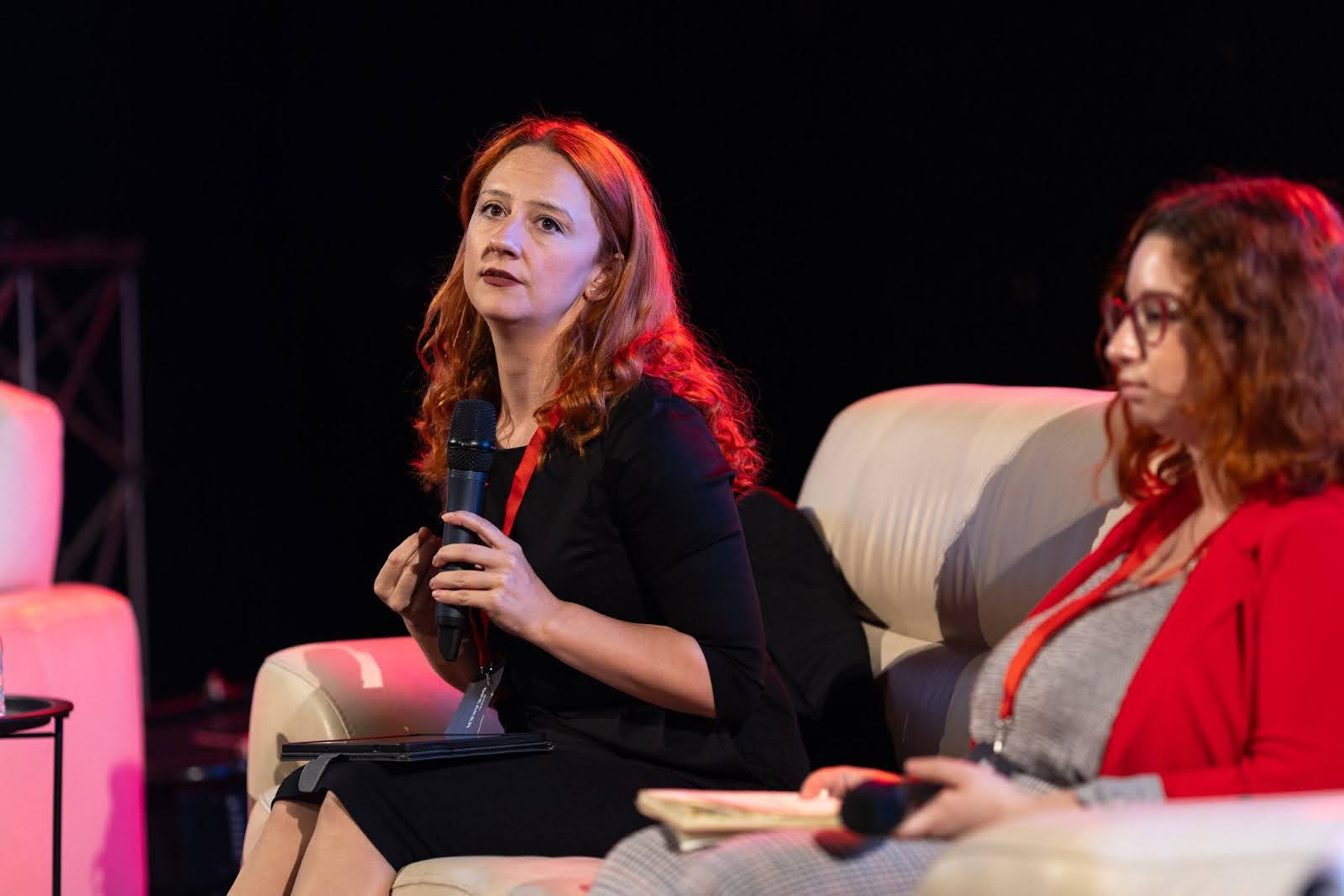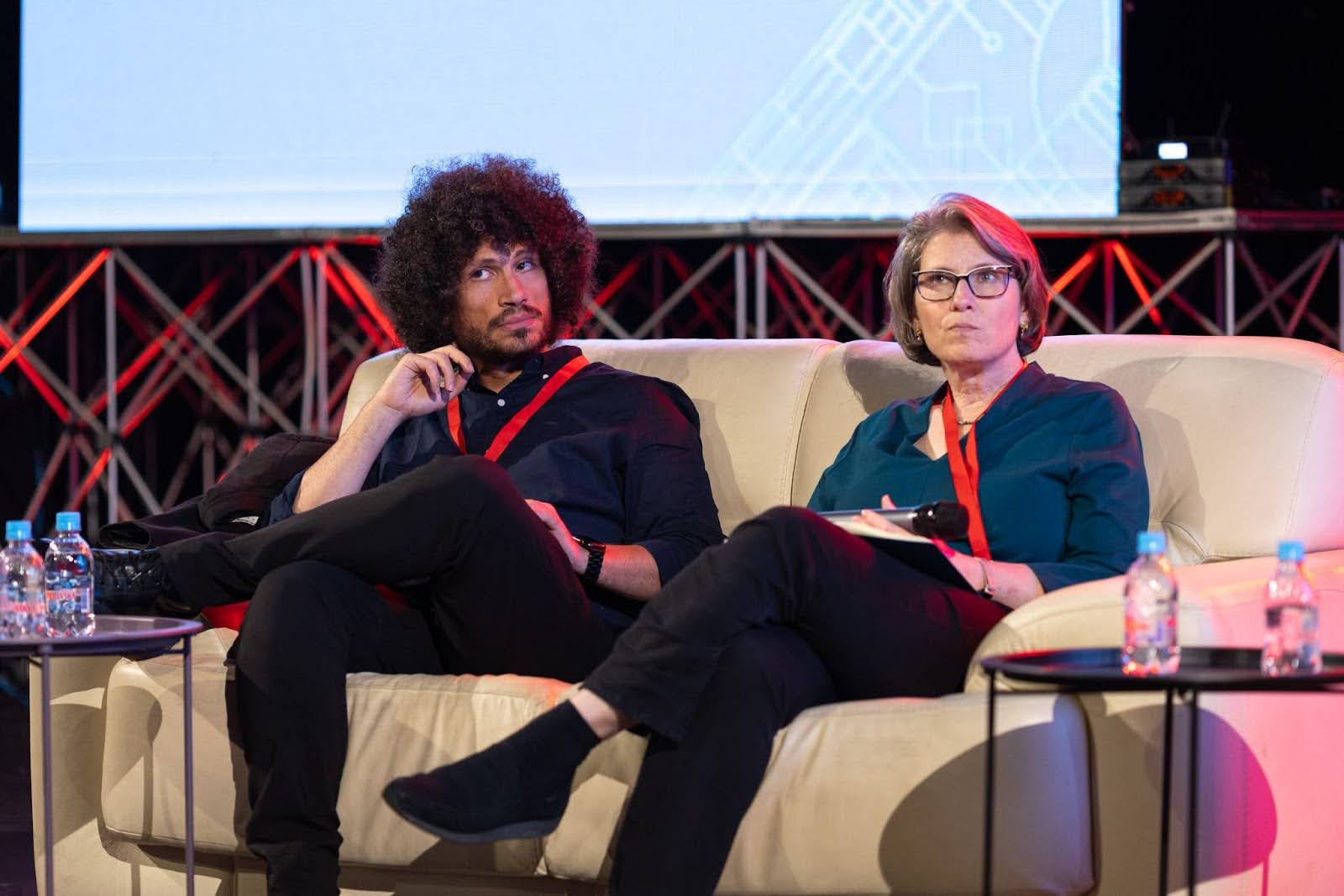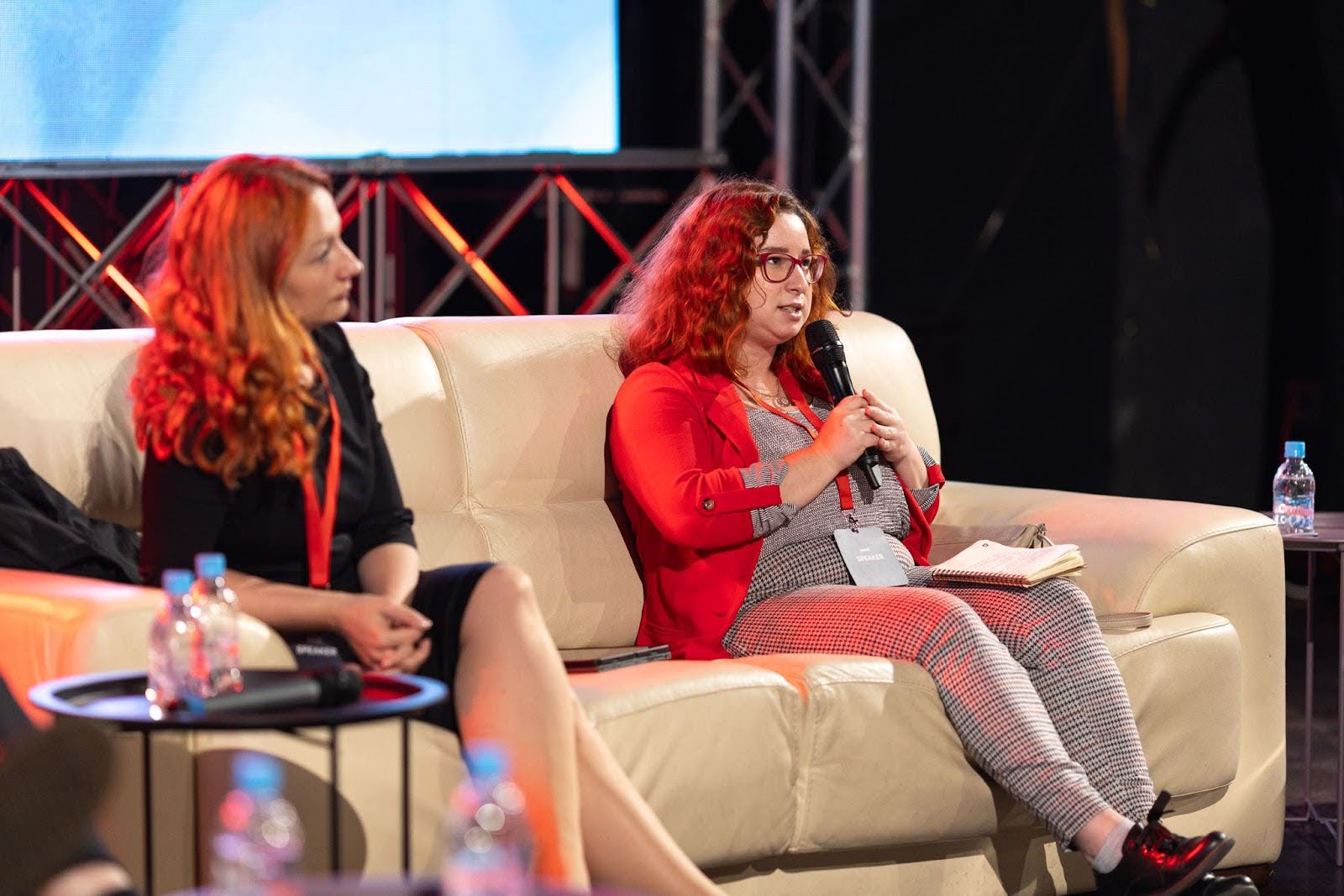Defending the Truth – The Whole-of-Society Approach
One of the sessions that took place on the first day of Point 13 is one regarding disinformation and its influence on the whole society. This session spotlighted regionally and globally resonant topics: defending truth in an age dominated by disinformation. Also, the session was supported by the Western Balkan Anti-Disinformation Hub.

The panelists on the session named “Defending the Truth – The Whole-of-Society Approach” were Simone Fontana, editor and journalist from Facta, Svetlana Siljanoska, former advisor of the Prime Minister of North Macedonia representing Metaporphosis Foundation, Kristina Šefičkova, Project Manager and analyst for the Information Resilience Program at Prague Security Studies Institute (PSSI) and Angie Drobnic Holan, director of the International Fact-Checking Network (IFCN). The moderator of this session was Marija Ćosić from CA “Why not”.
The opening speech of this session was held by Svetlana Siljanovska, who unveiled a “blueprint” recently developed by the Metamorphosis Foundation in North Macedonia. This document proposes a regional, coordinated, and value-driven response to disinformation, founded on the premise that the fight is not merely about information integrity—but about defending democracy itself.
“You’re either in the democratic camp or the anti-democratic one. If you’re not an ally, you should start acting like one,” Siljanovska emphasized.
She stressed that democratic actors must match the resources, strategy, and coordination of adversaries spreading disinformation, proposing a framework based on four pillars: coordinated action, proportional budgeting, a smart strategic approach, and a joint regional effort. She also emphasized that the general problem in Western Balkan region regarding civil society is a tendency for elimination of competitiveness – among different civil society organisations, among the civil society and the institutions and with academia as well. Three critical priorities were highlighted: election integrity, regulation of digital platforms, and demonetization of disinformation.

Angie Drobnic Holan provided a deep view from the United States, where institutional pressure on academia, media, and fact-checking has intensified.
“It’s not just an attack on journalists—it’s an attack on the entire independent knowledge-seeking community,” Drobnic Holan warned.
She noted the chilling effects of funding cuts, legislative threats, and corporate rollbacks such as Meta’s termination of its US fact-checking partnership which caused a chain problem in the society. Nonetheless, she urged continued alliance-building across sectors—especially with the public—and highlighted the need for journalists to maintain a dialogue with their audiences.
At the end, she expressed the very important role of preserving the “common mentality” regarding fact-chacking problems that are globally recognized right now. When she was asked by an audience member. IFCN sent an open letter to Meta when the program was revoked describing that fact checking is for public benefit.
Simone Fontana emphasized the importance of fact-checking in journalism, describing it as a fundamental practice, especially in a media environment where freedom of expression can be misused. He stated that fact-checking should not be seen as censorship but as a basic journalistic responsibility.
“Fact checkers never had the power to censor but to flag contents,” Fontana said.
He also raised concerns about the end of Meta’s third-party fact-checking program and suggested that its absence contributed to the spread of misinformation. He advocated for comprehensive and practical strategies to address disinformation and noted that fact-checkers often face criticism or personal attacks for their work.
“Fact-checking is not censorship. It’s journalism 101,” Fontana concluded.

Kristina Shevtikova detailed an innovative initiative by the Prague Security Studies Institute that targets the business model of disinformation. By pressuring advertisers—many of whom unknowingly fund harmful content through automated ad systems—her team has helped eliminate the profitability of some disinformation sites in the Czech Republic.
“We treat disinformation as a business—and we aim to make it unsustainable,” Shevtikova said.
Their approach includes partnerships with marketing networks, chambers of commerce, and public institutions. One of notable results she stated was that the Czech Ministry of Regional Development has revised its media buying guidelines to ensure taxpayer money doesn’t inadvertently support disinformation sites. Also, PSSI made a network of responsible advertisers which includes over 200 members that shows this strategy as a long-term one.

The whole of society approach emphasizes collaboration across government institutions, civil society, private sector, academia, and the public in solving complex challenges. In the fight against disinformation, this approach is not just ideal—it is essential.
The Point 13 fourth session made one thing clear: fighting disinformation requires everyone working together. Kristina Shevtikova showed how the private sector, especially advertisers, can help by stopping the flow of money to harmful content. Angie Drobnic Holan stressed that the media, universities, and scientists need to stand united in protecting the truth. Simone Fontana highlighted the need for stronger teamwork between journalists and fact-checkers to rebuild public trust. And Svetlana Siljanovska pointed out that civil society and institutions must overcome divisions and work together on coordinated, regional solutions.
Author: Rijalda Ramusović